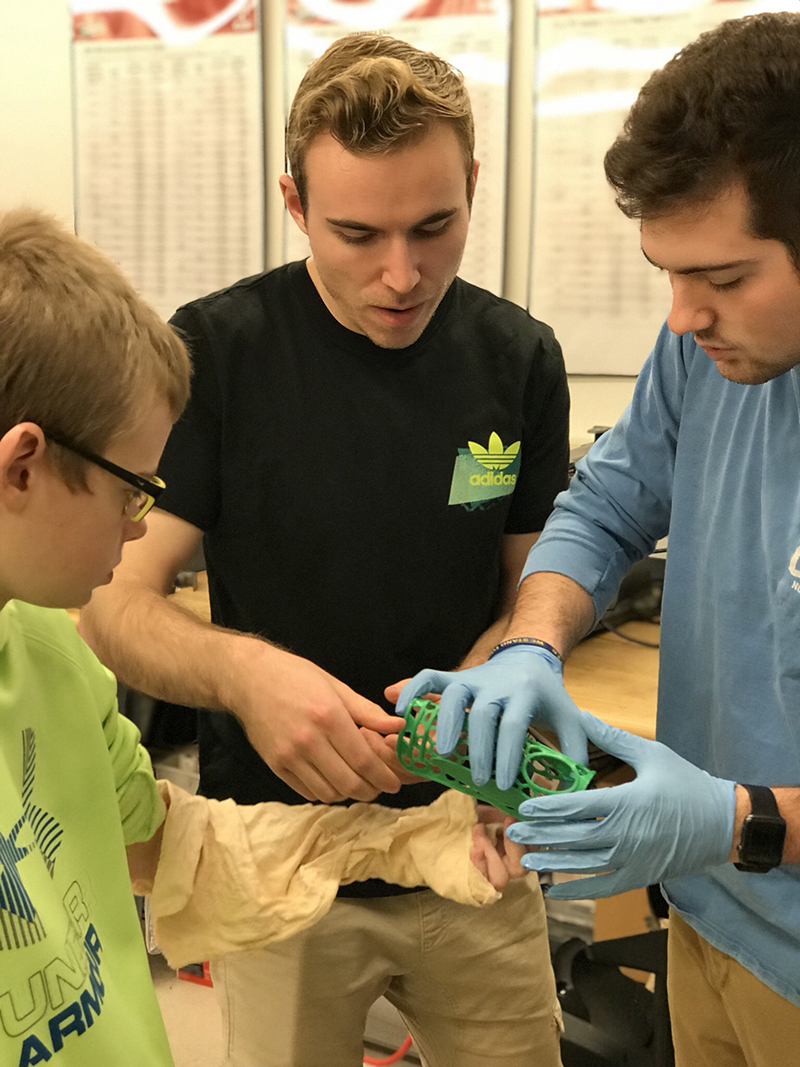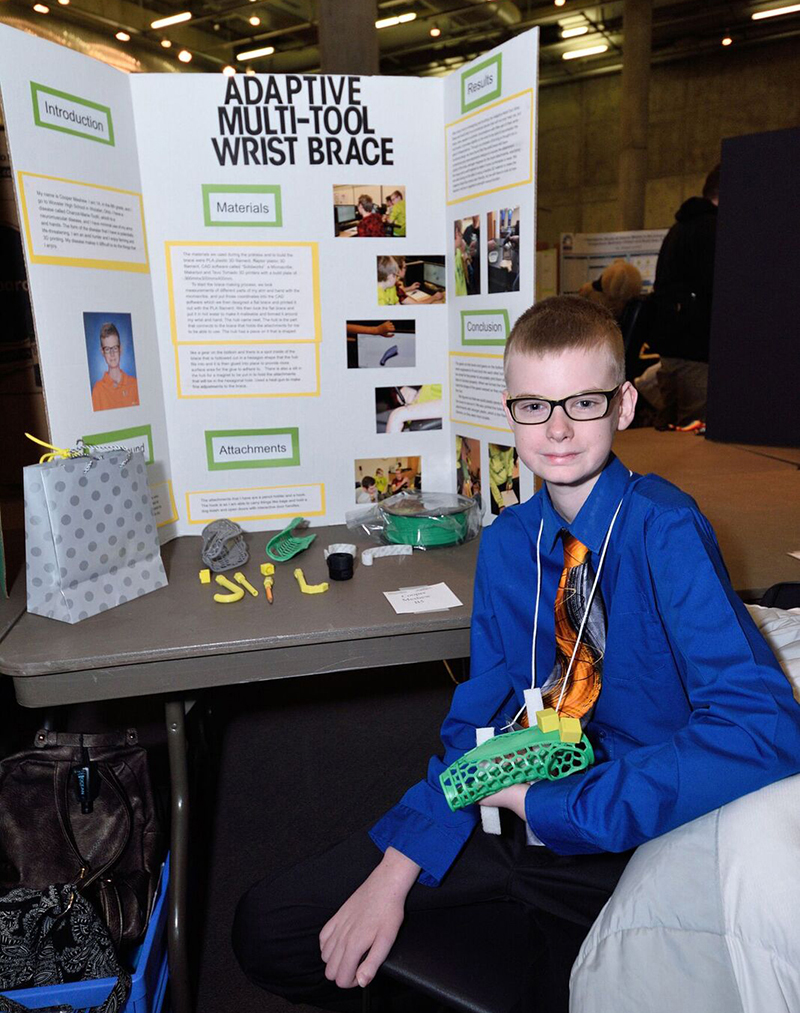Student engineers improve mobility of teen with nerve disorder
It’s not easy for 14-year-old Cooper Meshew to do the simplest of things, like brush his teeth or open doors. In fact, for the last three years, he’s been unable to write his own name. With progressive muscle loss and limited mobility in all his limbs, Cooper could not begin to sketch out his thoughts for the special gadget he helped design that would eventually improve his physical abilities.
All that has changed, thanks to two University of Akron biomedical engineering students who relied on Cooper’s words and descriptions to create a 3D-printed adaptable arm brace. The youngster has now regained the ability to use a fork to eat or a pencil to write his name.
It all happened after a doctor at Akron Children’s Hospital connected Cooper to our Department of Biomedical Engineering. The doctor had asked Cooper, “If I could wave a magic wand and do one thing for you, what would it be?” Cooper, with a keen interest in engineering, wished for an engineer to come to his Wooster home and help set up his own 3D printer. That’s when seniors Stephen Conklin and Brett Flesher learned about Cooper and the issues he faces from his nerve disorder.
Teamwork = success
Conklin and Flesher collaborated with Cooper to create an adaptable brace that molds around Cooper’s dominate left arm, reaching around his mid forearm to his thumb, to give it more useful movement. The brace, 3D-printed in pieces for Cooper to configure as needed, allows the adding of different attachments to help him do tasks better, like eat or pick up objects. Stephen Paterson, an engineering technician here, offered guidance throughout the project and helped Cooper get special software for his personal 3D printer.
RELATED: College of Engineering Student Design Teams
“Cooper was motivated throughout this entire project,” said Flesher. “He knew what he wanted, what he needed and what he could do himself, which I found to be incredibly mature. To me, this project was not special because of Cooper’s condition; it was special because, in a short amount of time, we acted as a solid team to create a simple and very practical new product that Cooper and the rest of the team should be proud of.”
Cooper is diagnosed with Charcot-Marie-Tooth Disease, a neurological disorder that is affecting the nerves in his arms, legs, face, eyes, throat and lungs. Though born with the disease, Cooper never showed signs of muscle weakness until he was about 9 years old.
Regained independence
“My new brace has allowed me to handwrite my own name for the first time in three years,” Cooper said. “This wouldn’t have been possible without the engineering team at The University of Akron that helped design it exactly how I wanted it. I’m so excited and thankful for this opportunity to improve my arm’s use.”
“There wasn’t any significant reason I wanted to participate in this project, other than to help Cooper accomplish something he hasn’t been able to do for so long,” Conklin said. “We take a lot of simple things for granted that Cooper was physically unable to do, like picking up a grocery bag or using utensils to eat. Being able to help Cooper create something that not only improves the quality of his life, but also the quality of others like him, is incredible.”
Cooper’s new arm brace won him a handful of awards and cash at the BEST (Bridging Engineering, Science and Technology) Medicine Engineering Fair held in Akron earlier this month. His awards were:
- Silver prize in “Biomaterials – 8thgrade” and $60;
- Patentability Award (sponsored by Tarolli, Sundheim, Covell, & Tummino, LLP) and $150;
- Creativity Award (sponsored by ZIN Technologies) and $50;
- Hallsten Innovation Award and $200.
“It’s so gratifying to watch Cooper have an avenue to gain his independence back,” said Heidi Meshew, Cooper’s mother. “Cooper is inspirational with his desire to design something not only for himself, but for others with his disease. His arms and legs barely work, but his mind is amazing.”
Media contact: Alex Knisely, 330-972-7429 or aknisely@uakron.edu.

Biomedical engineering majors Stephen Conklin (right) and Brett Flesher fit Cooper Meshew’s 3D-printed brace to his arm and check for high-pressure points that would damage his skin.

Cooper Meshew entered his 3D-printed arm brace in the 2018 BEST Medicine Engineering Fair, held here March 10. Cooper took home several awards and delivered a brief speech about his project, telling the audience the brace enabled him to write his name for the first time in three years.
